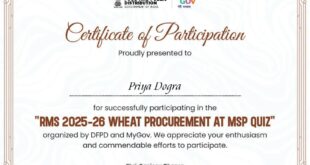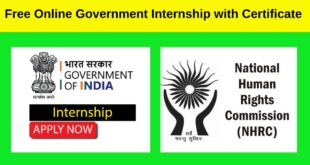Apply Now: Certified Associate In Scrum Fundamentals Exam
Certified Associate In Scrum Fundamentals Certification Answers
QUESTION 1: What kind of software development projects can be executed by the Scrum Project Management Framework?
- Complete software packages
- Customer projects
- Sub-systems, components or parts of bigger systems
- All kinds of software development projects
- None of the given answers
QUESTION 2: What does NOT belong to the cornerstones of the agile manifesto?
- Individuals and interactions over processes and tools
- Working software over comprehensive documentation
- Processes over people
- Customer collaboration over contract negotiation
- Responding to change over following a plan
QUESTION 3: What is defined by the Scrum Framework?
A) Rules & Roles
B) Document guidelines
C) Artifacts and events
- A
- B
- C
- A, B, C
- A, C
QUESTION 4: Where are the customer requirements stored?
- In the Product Backlog
- In the Sprint Backlog
- In a database
- In a Scrum Product Requirement Specification
- Nowhere. The Scrum Product Owner knows them
QUESTION 5: Which one of the following main roles are defined by the Scrum Framework?
A) Scrum Tester
B) The Scrum Team
C) Scrum Manager
D) Scrum Master
E) Scrum Product Owner
- A, B, C, D, E
- B, C, D, E
- B, D, E
- A, B, D, E
- A, B, C, D
QUESTION 6: Which one of the following main events are defined by the Scrum Framework?
A) Sprint Planning Meeting
B) Sprint Retrospective Meeting
C) Sprint Review Meeting
D) Mid-Sprint Status Review Meeting
E) Daily Scrum Meeting
- A, B, C, D, E
- A, B, C, D
- A, C, D, E
- A, B, C, E
- A, C, E
QUESTION 7: Which concept is NOT defined in the Scrum Framework?
- Scrum Master
- Project Manager
- Scrum Product Owner
- Daily Scrum
- Scrum Product Burndown
QUESTION 8: What is important in all Scrum projects?
A) Self-organization
B) Clear hierarchies in the company
C) Communication
D) Continuous improvement
- A, B, C, D
- A, C, D
- A, D
- A
- A, B
QUESTION 9: In software engineering, what are the disadvantages of the classical waterfall model?
A) End-Product has to be fully anticipated beforehand.
B) Some requirements are implemented as defined in the beginning of the project, and yet they are not really needed by the customer.
C) Each phase is strictly separated.
- A
- B
- C
- A, B
- A, B, C
QUESTION 10: What are the advantages of the Scrum Framework?
- Fine-grained requirements are only defined when they are really needed.
- All activities to design, build and test a certain functionality are kept together in one phase.
- Changes are expected and welcomed by Scrum team.
- All of the given answers
- None of the given answers
QUESTION 11: Who is responsible for maximizing the return on investment (ROI)?
- Scrum Master
- Scrum Product Owner
- The Scrum Team
- Project Manager
- Tester
QUESTION 12: How many people should be in a Scrum Team?
- 7+/-2
- 5+/-1
- 4+/-5
- less than 10
- more than 9
QUESTION 13: Which one of the following meetings is part of a Sprint Planning Meeting?
- WHAT-Meeting
- HOW-Meeting
- HOW MUCH-Meeting
- WHAT-Meeting and HOW-Meeting
- WHAT-Meeting and HOW MUCH-Meeting
QUESTION 14: What is the goal of the WHAT-Meeting?
- To define a realistic Sprint Backlog containing all items that could be fully implemented until the end of the Sprint.
- To clarify all open questions regarding a given feature.
- To discuss requirements with the customer.
- To present development results to the management.
- To inform the team about what they need to implement next.
QUESTION 15: What is necessary for a successful WHAT-Meeting?
A) A Sprint Goal
B) The relevant entries in the Scrum Backlog are presented
C) The team knows their capacity
- A
- B
- C
- A, B, C
- A, B
QUESTION 16: What is the goal of the HOW-Meeting?
- To present the architecture to the customer
- To fill the Sprint Backlog by identifying the concrete tasks needed for a complete implementation of given features
- To discuss 3rd party software used during development
- To break-down high-level customer requirements into more fine-grained requirements
- To report status to the management
QUESTION 17: What is the goal of the Sprint Retrospective Meeting?
A) Reflect on negative issues during the last Sprint.
B) Define actionable suggestions to improve performance.
C) Reflect on positive issues during the last Sprint.
- A
- B
- C
- A, B, C
- A, B
QUESTION 18: What is the goal of the Sprint Review Meeting?
- Present and demonstrate the completed Sprint Backlog items.
- Reflect on positive and negative issues during the last sprint.
- Review of customer requirements.
- Review of development documentation.
- Report status to management.
QUESTION 19: What is the goal of the Daily Sprint Meeting?
- Report status to management.
- Each member of the team gives a short info about what he did yesterday, what he plans to do next and if there are any impediments.
- Discuss the requirements with the team.
- The Scrum Product Owner informs the team what they have to do next.
- Compile a detailed report why committed backlog items are not complete yet and define a plan when they are going to be finished.
QUESTION 20: What is NOT part of the Scrum Product Backlog?
A) Detailed tasks
B) Recurring meetings like Daily Scrum
C) User stories
D) Tasks for exploration of features
E) Administrative tasks
None of these should be in the Product Backlog.
- A, B, E
- C
- B, C, D
- A, B, D, E
QUESTION 21: Who is responsible for maintaining the Scrum Product Backlog?
- The Scrum Team
- Upper Management
- Customer
- Scrum Product Owner
- Scrum Master
QUESTION 22: What is the Scrum Backlog?
- List of things which the Scrum Team might do in the future.
- List of items that are behind schedule.
- A list of high level requirements and user stories that need to be done within the project.
- List of project milestones.
- Action items to be sorted out in a given sprint.
QUESTION 23: What is NOT true for the entries in the Scrum Backlog?
- All Product backlog entries add value to the product and customer.
- Level of detail is high for all Product backlog entries.
- In general Product backlog entries are prioritized and ordered.
- In general there are high level estimates for Product backlog entries.
- Product backlog entries are not action items.
QUESTION 24: Which of the following is a user story?
- As an authenticated user, I want to see all my action items.
- Login must be possible.
- List of action items for Login User Operation.
- Login.
- What happens if I login?
QUESTION 25: What are the properties of the Scrum Product Backlog?
A) Entries always add value for the customer.
B) Entries are prioritized and ordered accordingly.
C) The level of detail depends on the position of the entry.
D) Entries are estimated.
E) It is a living document.
F) No action-items and no low-level tasks are yet defined.
- A, B, C, D, E, F
- A, C, D, E, F
- B, C, D, E, F
- A, B, C, D, E
- A, B, C
QUESTION 26: How much time should the Scrum Team allocate to maintain the Scrum Product Backlog (discussions, estimations, etc.)?
- Nothing. The Scrum Product Owner is responsible for this.
- Less than 2% of overall project.
- About 10% of overall project.
- About 20% of overall project.
- More than 20% of overall project.
QUESTION 27: What is the correct order of steps during planning poker?
A) Each member of the Scrum Team privately chooses the card representing the estimation.
B) The Scrum Product Owner presents the story.
C) The Scrum Team asks questions.
D) People with high and low estimates are allowed to explain their estimate.
E) All selections are revealed.
F) Repeat until a consensus is found among all team members.
- A, B, C, D, E, F
- B, C, A, E, D, F
- F, D, B, E, C, A
- D, C, E, F, B, A
- E, A, B, D, F, C
QUESTION 28: What metric is used to estimate with Planning Poker?
- Numeric sizing (1 through 10)
- T-shirt sizes (XS, S, M, L, XL, XXL, XXXL)
- The Fibonacci sequence (1, 2, 3, 5, 8, 13, 21, 34, etc.)
- Person Hours
- Person Months
QUESTION 29: Why can the Fibonacci sequence (1, 2, 3, 5, 8, 13, 21, 34, etc.) be used to estimate the backlog items?
- It looks cool.
- To make the estimation results transparent to the management.
- It fairly reflects the correlation between increasing complexity and increasing estimates.
- To compare estimations with the estimations of other teams.
- None of the given answers.
QUESTION 30: What is a Release Plan?
A) A very high-level plan for multiple Sprints.
B) A guideline that reflects expectations about which features will be implemented and when they are shipped to customer.
C) The list of milestones defined by management.
- A, B, C
- A, C
- B, C
- A, B
- C
 Priya Dogra – Certification | Jobs | Internships
Priya Dogra – Certification | Jobs | Internships



